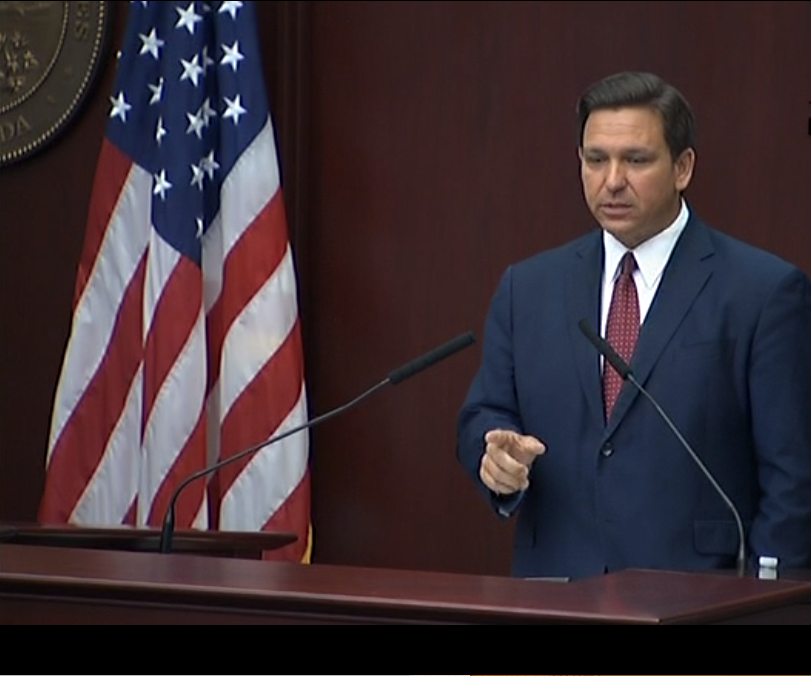 While other states were mandating lockdowns during the coronavirus pandemic, Florida was right to keep the state open, including its brick-and-mortar schools, Gov. Ron DeSantis said in his annual state of the state address today.
While other states were mandating lockdowns during the coronavirus pandemic, Florida was right to keep the state open, including its brick-and-mortar schools, Gov. Ron DeSantis said in his annual state of the state address today.
“Florida schools are open, and we are only a handful of states in which every parent has a right to send their child to school in person,” DeSantis told House and Senate members who gathered for the opening of the 176th legislative session. “We will not let anybody close your schools; we will not let anybody close your businesses, and we will not let anybody take your jobs.”
The governor also premiered a video that included scenes of happy, masked schoolchildren walking single file down the hall while being led by a happy, masked teacher. He thanked school administrators for their role in making sure campuses opened for the 2020-21 school year safely and smoothly.
In states that closed campuses, DeSantis said, the consequences will be “catastrophic and long lasting.”
Continuing the subject of education, DeSantis added that he hopes to build on last year’s priorities, which included a $500 million boost to raise district schoolteachers’ starting salaries to $47,500, putting Florida in the nation’s top five for teacher pay. He also cited education choice as a priority and congratulated the state for rising to No. 2 nationally in the percentage of graduating seniors passing Advanced Placement exams.
“Florida is leading in education, and we must continue to do so,” he said.
DeSantis’ remarks followed speeches from top legislative leaders delivered from their respective chambers earlier in the day.
State Senate President Wilton Simpson, R-Trilby, spoke specifically about Senate Bill 48, sponsored by Sen. Manny Diaz Jr., R-Hialeah. The bill would streamline the education choice system by combining five scholarship programs into two. It also would convert traditional scholarships to flexible spending accounts to give parents more control over their children’s education.
Simpson said the pandemic amplified the importance of parents’ ability to choose the best learning environment for their children. The scholarship programs, a patchwork system developed over two decades, needs to be simplified and accessible for the more 100,000 families who benefit from the program, which provides equity to lower-income families, he said.
“The fact is, school choice has always existed for wealthy families,” Simpson said. “I believe this option should be available to every family. It is the only way to truly break the cycle of generational poverty.”
You can read more about SB 48 here.
The 2021 legislative session is scheduled to run for 60 days and is expected to take up a number of education issues besides SB 48. These include school funding, dual enrollment affordability for private and homeschool families, career planning and workforce development and early childhood education.
Legislation under consideration includes SB 52, which would allocate $12.5 million to cover the costs of private and homeschooled who participate in dual enrollment programs by taking courses from a partnering college or university. The bill also would allocate $16 million to cover the costs of dual enrollment courses taken during the summer for all Florida students, including those who attend public schools.
The bill and its House companion, HB 281, would fix a glitch that occurred in 2013, when a change in the law shifted the cost of dual enrollment programs from colleges to school districts. Because school districts are state funded, the state picked up the cost. But private schools, which were not allowed pass the cost on to their students, had no alternative but to limit their dual enrollment offerings.
The Florida Conference of Catholic Bishops and the Florida Association of Academic Nonpublic Schools have each endorsed the dual enrollment bills.


